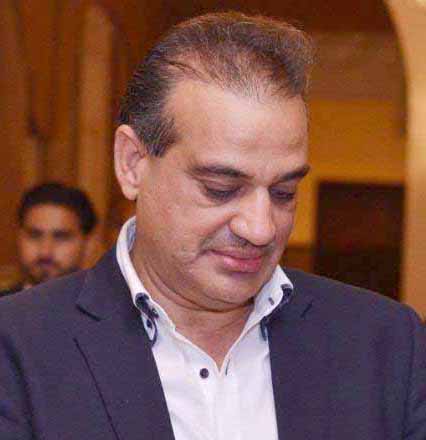The PTI plea against the ECP announcement has already been admitted. It will ostensibly determine whether the country is to be run as per the Constitution or whims and wishes of particular persons or institutions
Comment
Ansar M Bhatti
Former Prime Minister and Chairman PTI Imran Khan while addressing a mammoth public gathering at the Minar-i-Pakistan on March 25, 2023 unfurled a 10-point recovery plan, which, according to him, shall steer the country out of economic and political crises.
The salient features of the proposed plan include fetching of foreign investments; boosting exports; tourism promotion; minerals exploration; encouraging the small and medium size enterprises; agriculture; expanding the tax net; checking the money laundering and welfare schemes for the poor class of the country.
As a matter of fact these were the very pillars upon which the PTI had established its government in 2018. And it deserves to be given credit that in some areas such as tourism, tax net, and welfare schemes the PTI government tried to streamline things with a view to facilitating the general public and improving the economic outlook of the country.
Compared with the incumbent PDM government, the socio-economic indicators during the PTI regime were quite encouraging, at least in the first one year.
The country possessed handsome foreign exchange reserves with a huge contribution from the overseas Pakistanis. Of course the then PTI government was supposed to do much more as it had come to power to not only break the status quo but introduce a system of Riyasat-e-Madina in which everybody was to be treated equally. But on this front the PTI failed and perhaps failed miserably that is why when it was removed from power people heaved sigh of relief.
Imran Khan later claimed that he could not perform since his hands were tied and decisions were taken not in the prime minister’s house but somewhere else. If that was the case then he should have stepped down immediately and sought a fresh mandate, is the argument he had to confront even from his supporters.
The Election Commission of Pakistan (ECP) has surprised all by announcing that the elections in Punjab would take place on October 8 this year. The KP governor, who was probably waiting for this move, immediately set the October 8 election date. It is an open secret now that except PTI nobody wants elections at least before October. The way things continue to transpire in Pakistan, elections even in October seem uncertain.
There are two fundamental questions that would require an answer if the election would not take place on the date already specified by the President on the directions of the apex court, 1) what shall be the status of the caretaker government whose mandate cannot be stretched beyond 90 days and how the President of Pakistan shall be elected when the incumbent President finishes his term in September this year? The President is elected by the provincial assemblies and the Senate and National Assembly members. If there are no immediate elections then there won’t be Punjab and KP assemblies in place hence no election of the President also.
As analysts suggest the PDM government wants to have its own president sooner rather than later. The obvious reason for this appears to be the sentence of Nawaz Sharif because it is the President who can pardon any kind of sentence. If the PTI would win in Punjab and KP as a result of elections on April 30 then for sure they would not support the Presidential candidate nominated by the PDM. But if there are no elections at all, even then the PDM candidate will have to face challenges. So in both cases the PDM predicament is quite obvious however in the second scenario where there are no elections, the PDM thinks it might maneuver things in its favour.
The constitution states that election to the office of President must be held no earlier than sixty days and no later than thirty days before the expiration of the term of the incumbent president. If assemblies are not present, the constitution allows the election of president to be delayed thirty days after the general election.
The electoral process itself is done via a secret ballot due to the post of the president being constitutionally non-partisan. Therefore, unlike during the election of the Prime Minister, cross-party voting is not liable to be considered defection.
The emerging political scene suggests that a lot of haggling is going to take place for the election of the President no matter whether elections for the Punjab and KP assemblies take place within 90 days or otherwise. The PML N supremo Nawaz Sharif is desperate to come back to Pakistan for which he needs a clean chit first. Courts may give him temporary relief by barring the law enforcing agencies not to arrest him upon his return nevertheless the permanent relief i.e to do away with sentence, can only come from the President of Pakistan.
The Supreme Court hearing therefore shall be of utmost importance. The PTI plea against the ECP announcement has already been admitted by the apex court. This is going to be a landmark case in the judicial history of Pakistan. It will ostensibly determine whether the country is to be run as per the Constitution or whims and wishes of particular persons or institutions.











